DUMP Days 2021: Most Famous IT Conference in Croatian Language Delights All Participants!
May 20, 2021 - The DUMP Association of Young Developers held another DUMP Days conference last weekend in Split.
As one of the largest IT conferences in this area, it brought together the Croatian IT community, but this time in an unprecedented hybrid edition. Partly at the Split FESB and partly online, the young 'dumpsters' successfully held a conference respecting epidemiological measures while bringing a lot of interesting content.

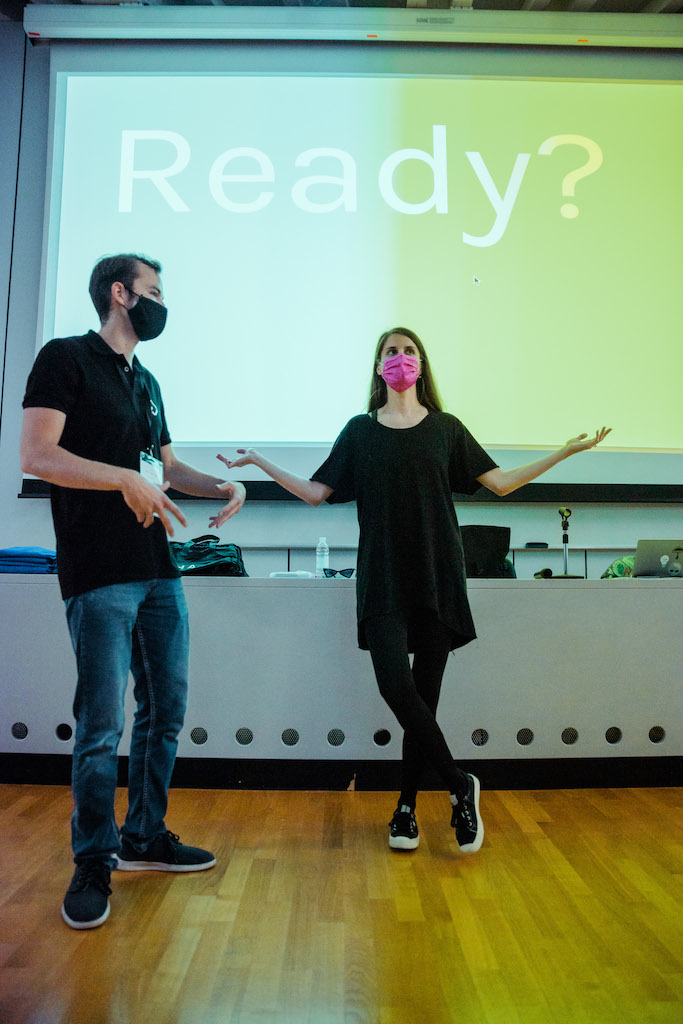
This year, DUMP Days, Dev, Design, Marketing, and Tech hosted all IT enthusiasts at the Faculty of Electrical Engineering, Mechanical Engineering, and Naval Architecture. Thus, Split once again became the epicenter of the Croatian technology scene, enabling companies to meet young talent in one place.
Nebojsa Veron, DUMP alumni, and director of Blank Development said the following at Days 2021:
"As an alumni member who has been here since the beginning of the Association, I am glad that a project that has brought the Croatian IT scene together for years is still being realized. Not only is the DUMP Days conference a great way to promote a company, but it is an ideal way to connect with young talented staff. For regular Days attendees, the lack of hats from previous years is a little strange, but the team has done everything at a top level."


The program of this year's Days was rich and varied. The experts held a series of lectures and two-panel discussions that visitors watched online from their laptops from the comfort of their own homes. About how this year's online format was accepted, the numbers of dumpers can testify - 2000+ online followers and the maximum allowed number of appointments for live groups!

Obviously, people want to learn more about innovations in the world of digital technologies, and they are also interested in other people's life paths that could potentially inspire them in creating their own destinies.
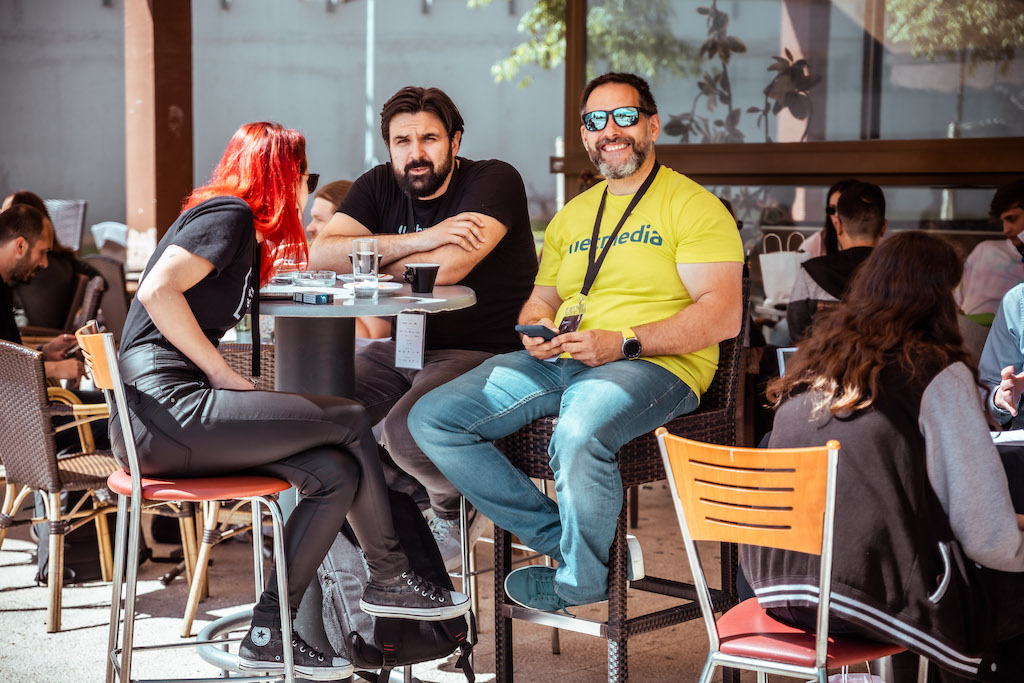
Regarding the physical participation in the conference, with the support of the Crisis Center and compliance with all measures, all activities were held without incident. The schedule did not disappoint at all - from workshops led by top experts in their fields to fly talks where partly outdoors and partly online, young people would meet company representatives and thus gain insight into the necessary knowledge and skills to find a job in the IT sector. After all, numerous regional companies had their stands in the exhibition space and gave insight into the atmosphere and work in their offices.

“Congratulations to the organizers of DUMP Days 2021! Despite all the epidemiological measures, they managed to organize excellent workshops and prepare interesting lectures for us digital people. See you next year!" said the enthusiastic Lydia, a DUMP Days visitor.
On this occasion, the Dump organization wants to thank their visitors for their participation, respect for all measures, and understanding.
For more news about lifestyle in Croatia, follow TCN's dedicated page.
Zagreb and Split KLM Flights Boosted!
May 19, 2021 - The latest news for flights to Croatia as Zagreb and Split KLM flights have been boosted!
Croatian Aviation reports that Dutch KLM currently operates twice a day between Zagreb and Amsterdam, and instead of Embraer aircraft, larger capacity aircraft operates on the route. Flights to Split have been running daily since yesterday!
Since the end of March, Dutch KLM has been gradually increasing the number of weekly flights between Zagreb and Amsterdam, adding a second daily flight on certain days of the week. The company now operates twice a day between the mentioned airports, and so far the Embraer E170 and E190 aircraft have mainly operated on this route.
The capacity of the mentioned aircraft is 76 or 100 passengers. Since the beginning of May, KLM has started using larger capacity aircraft on certain days of the week, mainly B737-700 type aircraft that can carry up to 142 passengers. Aircraft type B737-700 are announced for both daily flights to Zagreb until June 14, and again from June 21 to July 4.
From the beginning of July to the end of August, KLM plans to use B737-800 aircraft with a capacity of as many as 186 passengers on the line between Zagreb and Amsterdam. During the peak of the summer season, the -700 version was announced only on Sundays, on one daily flight.
KLM thus significantly increases the number of offered seats to and from Zagreb, counting on higher demand in the summer months. From June 1 to August 31, the Dutch airline will offer more than 56,800 seats on this route!
Increasing the number of operations towards Split
As of May 17, KLM increased the number of operations to Split Airport and now flights to and from Amsterdam are available daily.
One Croatian Aviation reader on yesterday's Amsterdam - Split flight confirmed that the B737-700 aircraft was almost full, so it is not surprising that the company decided to increase the number of operations to Split Airport earlier than in the summer season of 2019. As announced earlier, KLM will run 12 times a week between Split and Amsterdam this summer!
In addition to Split and Zagreb, this summer KLM will also run to Dubrovnik, from June 26, every day. Thus, the Dutch national airline, the oldest airline in the world, will have as many as 33 flights a week to three Croatian airports in the peak season this summer, which is a significant increase in the number of operations compared to the year before the global pandemic. Air France, also part of the same group, is present in three Croatian airports - Zagreb, Split, and Dubrovnik.
Although the E170 and E190 are very well received by passengers, the B737 has a significantly higher capacity, and the company will soon be able to use the Internet on flights within Europe (free for social networks), so this additional service will be available on flights to Split and Zagreb. Considering that good bookings are expected on the new route to Dubrovnik, there is no doubt that the company will use aircraft from the B737 family on this route as well.
Apart from those traveling between the mentioned cities, it should be noted that the share of transfer passengers on KLM lines is extremely high, and within Europe, this applies mainly to destinations such as Dublin, London, Manchester, and Oslo.
KLM has significantly increased its presence in the Croatian market in the last two years, and it is to be expected that this will continue in the future. A completely logical choice of the company would be the establishment of regular lines from Amsterdam to Pula and Zadar.
Follow the latest on flights to Croatia HERE and the latest travel updates and COVID-19 news from Croatia HERE.
For more on travel in Croatia, follow TCN's dedicated page.
70 Cities Elect Mayors in 1st Round of Elections
ZAGREB, 18 May, 2021 - During the local elections held throughout Croatia on 16 May, a total of 70 cities managed to elect their heads in the first round of voting, while others will have mayoral runoffs on 30 May.
Of those 70 mayors, who clinched the victory in the first round of voting when they gained the support of more than 50% of the voters who turned out for the elections, 36 winners are from the Croatian Democratic Union (HDZ), or six fewer than in 2017, whereas 13 Social Democratic Party (SDP) mayoral candidates gained outright victory, or one more than in the first round of the local elections in 2017.
Seven female mayors winners in first round
Of those 70 mayors elected in the first round of the elections, seven are women.
According to the report provided by the gradonačelnik.hr portal, there is a rising trend in the election of mayoral candidates who are not members of political parties and who are introduced as independent candidates. Ten independent mayors were elected on Sunday.
Donja Stubica mayor reelected with support of more than 83% of voters
Of the winners with an outright victory on 16 May, the most successful mayor who managed to gain the largest support was independent Nikola Gospočić, who was reelected for another term in Donja Stubica with 83.01% of the voters who went to the polls voting for him. In the previous term, he was a member of the SDP party and left it before these elections.
Another independent mayor, Dinko Burić, won 82.15% of the support for his new mayoral term in the eastern city of Belišće.
In terms of the percentage of support, Darijo Vasilić of the regional PGS party ranks third, winning 80.26% of votes for another mayoral term in the City of Krk.
Of the regional parties, the Istrian Democratic Party (IDS) remains the strongest. In the first round of the voting, five IDS candidates were elected mayors.
Four biggest cities to have mayoral runoffs
Zagreb
Tomislav Tomašević of the We Can!, New Left, ORAH and For the City coalition took the lead in the mayoral race for Zagreb on Sunday, winning 45% of votes, and will face-off with Miroslav Škoro of the Homeland Movement party (12%) in the second round of the elections.
Split
In the biggest Croatian Adriatic city, Ivica Puljak (Centre) and Vice Mihanović (HDZ) will face off in the 30 May runoff. Puljak won 26.82% and Mihanović 23.23%.
Rijeka
In the northern coastal city of Rijeka, the current deputy mayor Marko Filipović (SDP, HSU, IDS, HSS) won 30.25% of votes, followed by independent Davor Štimac (16.10%).
Osijek
In the eastern city of Osijek, Ivan Radić (HDZ) won nearly 39% of votes, ahead of independent Berislav Mlinarević, backed by the Homeland Movement and Bridge (about 20%), and they will vie in the second round of the elections on 30 May.
For more about politics in Croatia, follow TCN's dedicated page.
From Russia to Croatia: The Young Expat Experience
May 21, 2021 - Four Russian girls moved from the two biggest cities in Russia to Zagreb and Split and shared their experience of living here. A look at their experience from Russia to Croatia.
Four girls including the author of this article collect their experiences from a long-term stay in Croatia and compare them with life in Russia. Three of us are from Moscow, one is from Saint-Peterburg. Two of us have lived in the biggest Russian cities since they were born, two moved from a little town in Siberia and the capital of Kyrgyzstan (ex-USSR). The girl who arrived first spent more than a year in Croatia. The girl who arrived last spent 6 months here. Dana, a project manager, (27) and Daria, an IR-specialist and human rights activist, (28) are based in Zagreb, while Nellia, an English teacher, (25) and Anastasia, a journalist, (25) live in Split.
The Weather
"The weather is great. I'd like to live here all the time," Daria living in Zagreb says. In comparison with average temperatures in the big cities in Russia, the weather in Croatia is much warmer and a lot sunnier. In Split, we have an even better perspective, because here we enjoy all the benefits of a Mediterranean climate favorable to health and good mood as well. But on the Croatian coast, there are a lot of winds, it's much stronger than in Moscow. When the temperature in Split is + 2-3°C degrees above zero and the 'bura' blows, the cold north-eastern wind from the Velebit mountain chain, it feels colder than - 10°C degrees and no wind in Moscow on the same say! For example, I remember exactly such a situation on 26 January.
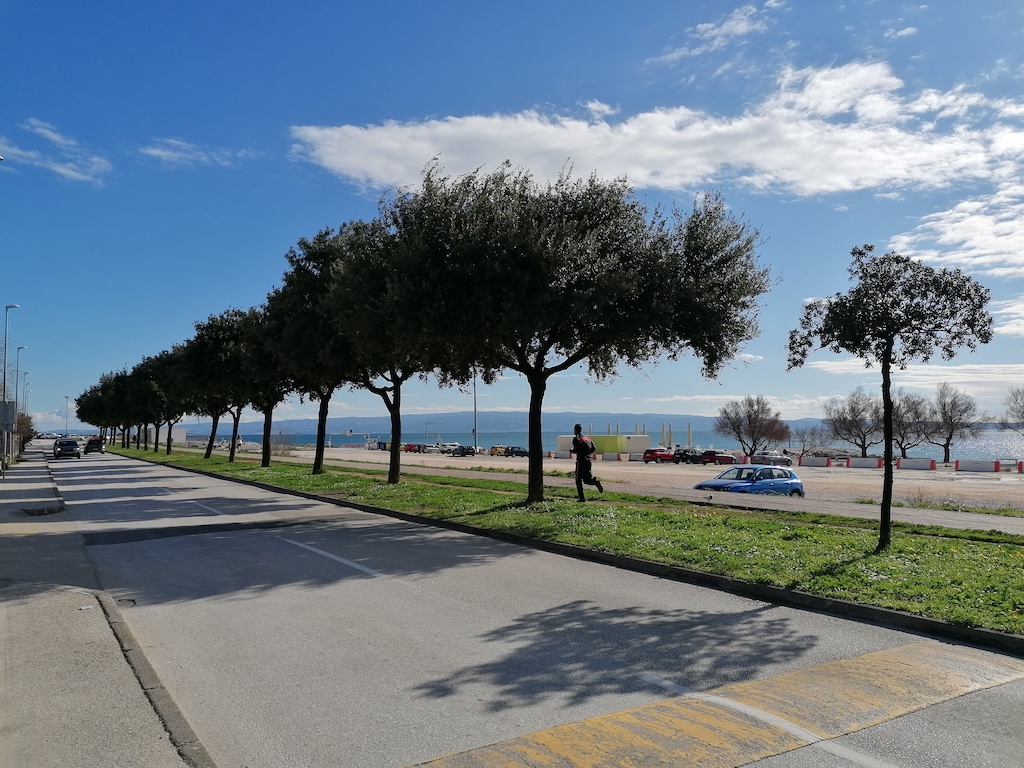
Other times we know from our sisters it was hotter in Moscow than in Split on 15 April or, for instance, on 18 May, i.e. about +31°C in Moscow versus +23°C in Split. But in general, during a Moscow spring, this kind of heat longs several days and in Split, it comes as stable warm weather. If you live here for a long period time, you'll agree that it's warmer here than in Russia!
I've never complained about the summer heat. For sure it's taken easier here between a sea and mountains than in Moscow among skyscrapers. But for people from the northern regions of Russia, summer in Croatia is quite challenging. Dana shares that during summer in Zagreb, she rarely leaves the house before 6 pm, because it is 38°C outside. Fortunately, she works remotely.
Food and supermarkets
Food talk among us hasn't identified anything special as well as problematic. A lack of plenty of dairy products we have in Russia probably contributed to Dana's cultural shock as she'd just moved to Croatia. But as soon as she found that the Croatian item 'svježi sir' (fresh cheese) is quite similar to the cottage cheese we often eat for breakfast in Russia, it isn't a problem anymore. Nellia who adheres to healthy food, was pleasantly surprised that in Split it costs less for her. She also had no difficulties finding components of her nutrition in local shops, like her favorite Russian grain 'grechka' (buckwheat) in the Tommy supermarket down the street, fresh vegetables at the open market, chicken sausages in the Purex shop close to the open market, etc.
We have a contentious relationship with the Croatian open market. From one side, even my first walk along its trading rows was very sobering. I started thinking about seasonal products again, I started favoring local products. When you live in a metropolis for a long time, you completely forget that salad with cucumbers and tomatoes is not really a winter dish. In Moscow, you have everything imported from everywhere year-round. On the other side, I can understand my friends from Zagreb who usually buy vegetables and fruits in the supermarket. If you live far from the open market, it probably won't be a part of your routine. If you have a fixed schedule and work in the mornings, the open market is also not your sort of thing, because it closes early. Nellia and I are indeed fortunate to live in 5 minutes from the open market in Split.
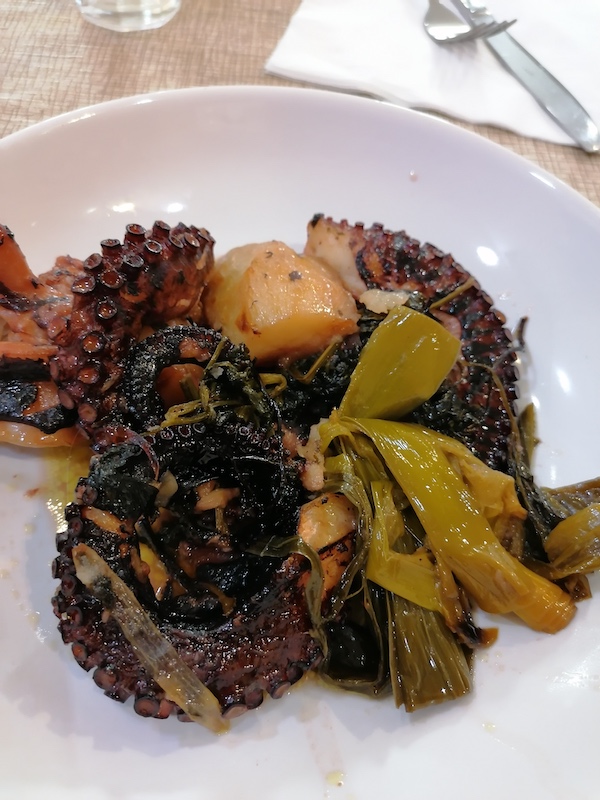
Concerning dishes and recipes, we are not really in Croatian cuisine. All of us work and cook for ourselves so that we prefer easy dishes which can be cooked fast. In fact, we've noticed that we began to cook more Russian dishes here than in Russia, because it just takes less time to cook what you've already cooked a hundred times. However, when we go to eat outside we always favor Balkan/Croatian/Dalmatian cuisine. We stand united in our love of 'burek' in everyday life. When we go to a restaurant or visit our Croatian friends, I've already got my TOP-3 favorite dishes: 1. 'hobotnica ispod peke', 2. 'Dalmatinska pašticada', 3. 'bakalar na crveno'.
Coffee and cafes
A handbook for expats that our host organization sent to Nellia and me before we arrived in Split mentions: "Everywhere in Croatia coffee drinking is a ritual. In Split, it's a way of life. In Split, people drink coffee 5 times a day," said our supervisor as we just arrived. Therefore, the two of us were prepared for coffee drinking. Daria had been living in Serbia for a year before she moved to Croatia, so she also knew about the Balkan way of coffee. For Dana, it showed up unexpectedly. It had an especially strong effect in light of the fact that she doesn't drink coffee at all. In Russia, we usually drink tea, although coffee consumption grows because of globalization.
Dana managed to find a solution. When they go to a cafe with friends, she orders hot chocolate in winter and orange juice in summer and likely tries to sip it slowly. "It sounds like a kind of stereotypical anecdote for my friends in Russia, however, it's true. Once I saw a guy drink coffee for literally 3 hours!" Dana remembers. My observed record was about 2 hours of coffee drinking, but I know for sure that after it, my companion went to drink coffee with his colleague.
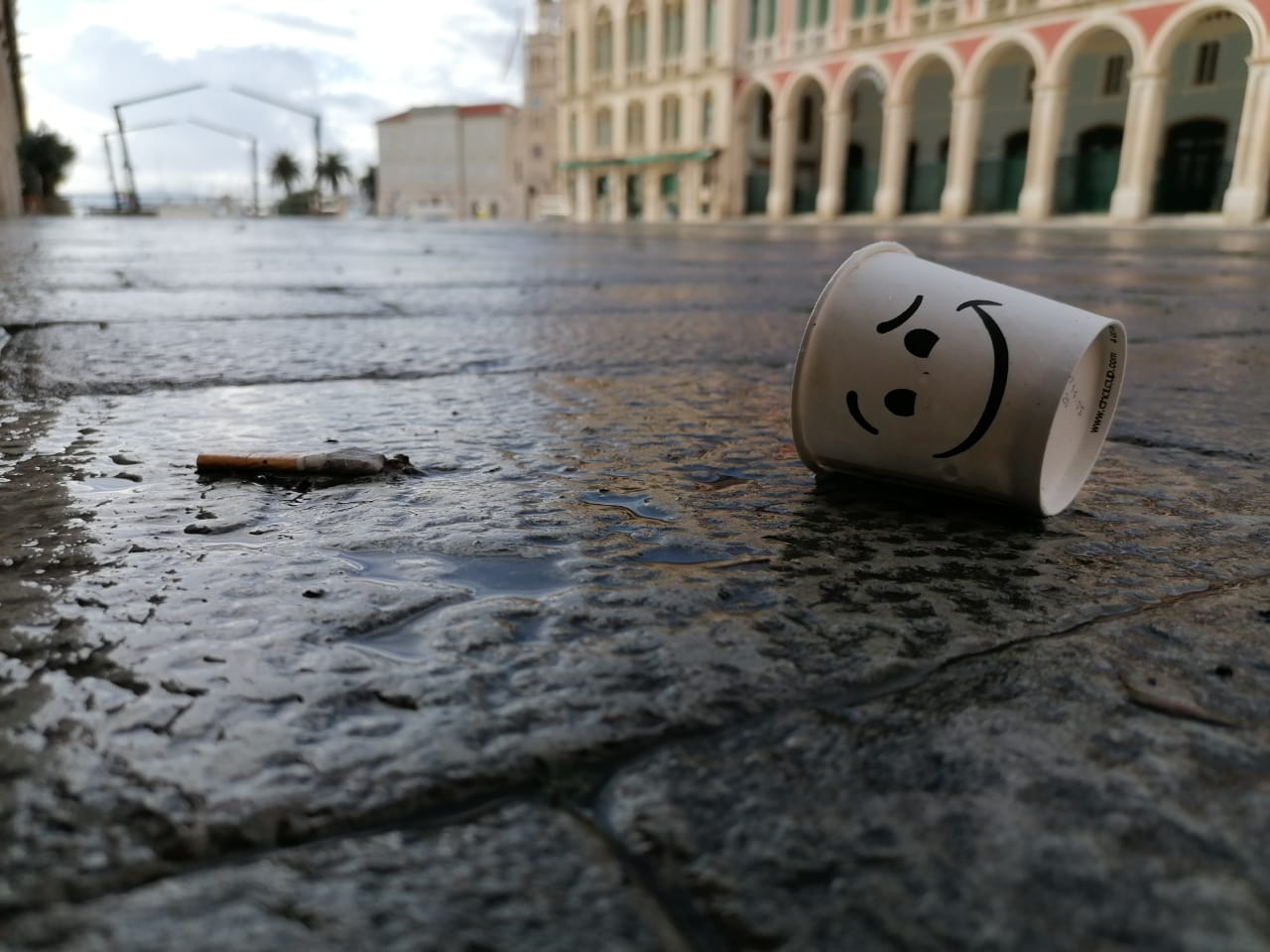
Seriously, we agree that coffee drinking is a charming and useful ritual. Daria shares that she likes to see the cafes full of people, even older people, as she goes to her office in Zagreb at 9.30 am. The remark about the older people is important because, in Russia, we don't usually go to cafes or public places and in a way, they're excluded from a part of social life. In Split, I really enjoyed how coffee rituals survived quarantine. People just took coffee to go and sat on the Riva. Actually, on Monday morning, there were so many people drinking coffee close to the sea as if nobody was working in this city.
Being a bit picky,, we'd say that there are many more trendy cafes in Moscow and Saint-Petersburg. There are cafes with a concept, cozy lights, interior design, a variety of sorts and methods for preparing coffee (machines, Chemex, cezve, etc.), plenty of amazing desserts that are perfectly matched with coffee. We don't lack it a lot, but in our opinion, it'd be a great growth zone. We want dessert!
Housing and household
We avoided a majority of housing problems because our organizations rent apartments and pay housing and communal services for us. For Nellia and me, the biggest discomfort was an absence of central heating during the winter. In Russia, we are used to heating inside the apartment, because the energy is cheap and the communal service works well. I used to wear only lingerie in my apartment in winter. And here in Split, I wore two t-shirts, a sweater or pullover. I slept under three blankets. Meanwhile, I never felt cold outside, because the winter in Split is warmer than in Moscow. The problem was that we lived in an old house, the only source of heating was the air conditioner in the room working 20/24 hours a day. We turned it off for 4 hours only to give it a technical break.
Split is a tourist city and quite often, an apartment owner asks you to leave at the very beginning of the tourist season, because they prefer to rent accommodation to tourists every day than to residents per month. It just brings more income. We were warned in advance, but anyway, moving from one flat to another creates some temporary inconvenience. A matter common for Zagreb and Split is that if you're one or two, it's much easier to find an apartment, than if you're a 4-5-6 group and everybody needs some private space.
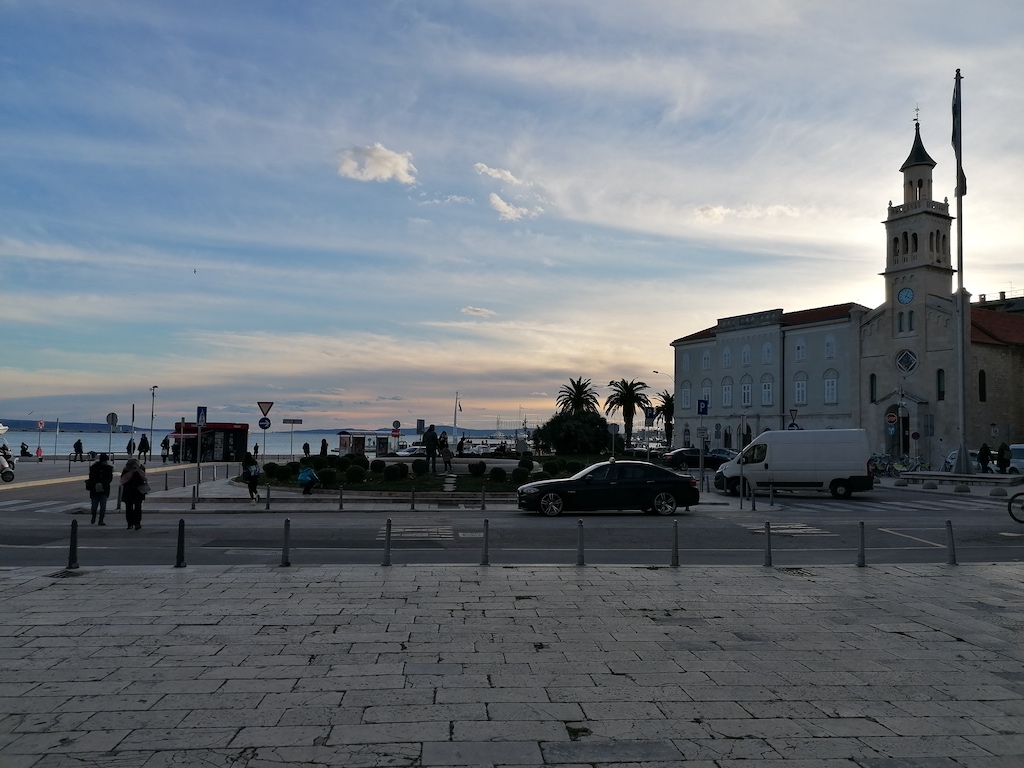
As for the household, we didn't meet any obstacles to find and buy things we needed. One funny story happened to me as I was buying a 'French press'. In my family, we always used this kind of press pot to brew tea. I mean to brew tea for a whole family, whereas for one person it's usually done in a cup. My mom's sent me Russian winter biscuits and a bag of herbal tea. Then I needed French press to brew the herbs and offer them to everybody in my community here. So, I went to the hardware shop nearby, I bought a French press and went back home. Then I realised that it didn't hold a piston in the upper position and went back to the shop to exchange it.
"I would like to exchange it because it doesn't work," I said. "How is it possible that it doesn't work? How does it actually work?" the seller wondered. "What is this thing intended for?" a second seller added to the conversation. "I know how it works, let me try!" a sales consultant shouted from the opposite side of the room and ran to us. For several minutes I've got a feeling that I'm not in southern Europe among the other Slavic nation who looks and speaks quite similar to my nation. I've felt like I'm among the indigenous people of Patagonia with whom I don't have much in common, and I've just re-invented the French press for them, thus they are now surprised and excited at the same time. In the end, all together we checked the boxes with French presses in the shop and looked for a stable piston in the upper position. I came out of the shop with the best working French press!
Services
First and foremost, our pain is mobile service and the Internet. It costs me here double more money (67-75 kn) than in Russia (~30 kn) for 200 minutes and 10 GB a month. While it's cheaper than the average Croatian pays, we have to use a kinda lifehack - we change SIM cards every month. Daria found this way first and then shared information with Nellia and me, otherwise, we'd pay three times more than in Russia. My boss kids with me that I'm a secret service agent every time I send him my new number. Dana adds that it's also annoying to buy 'bonovi' for the mobile account in the stores and pay commission, whilst you can do it online and without commission through your bank's mobile app in Russia.
Two of us had an experience with Croatian Post as we were waiting for our packages from Russia. From the Russian side, we have total trackability, we can watch it in the app of Russian Post. From the Croatian side, there isn't such trackability. Daria's parents forgot to put the number of the house on the package. As a result, Daria spent significant amounts of time trying to get her package from the local post office, sorting center, and Croatian customs. "The matter was, for instance, that once I asked different post officers in the same post office, they gave me contradicting info," Daria explains. It looked like there is no central informational system where every officer can check the info need.
Nellia and I consulted a lot with our local friends, but finally, we couldn't find a good beauty service for an affordable cost. Dana was the one who tried our medical insurance, and it worked nicely in Zagreb: there weren't queues, the doctors spoke fluent English. Daria probably uses delivery services more often than us, so we agree with her that it works and costs almost the same as in Russian cities.
Travelling and entertainment
Our concepts of travelling while you're based in Croatia differentiate a lot. The reason is that Dana had arrived before the Ccovid-19 pandemic began, and the rest of us came between the first and second waves of quarantine. "Well, travelling... I've been to Italy three times, several times to Vienna, once to Slovenia, to Serbia and Montenegro," Dana enumerates quietly as I ask her about travelling. I listened to her with my mouth wide open. From now it's complicated to imagine such freedom of travel without PCR tests and self-isolation. However, it seems according to Dana that in normal times, Zagreb is a good base to be near to these timeless popular travel destinations like Vienna and Venice.
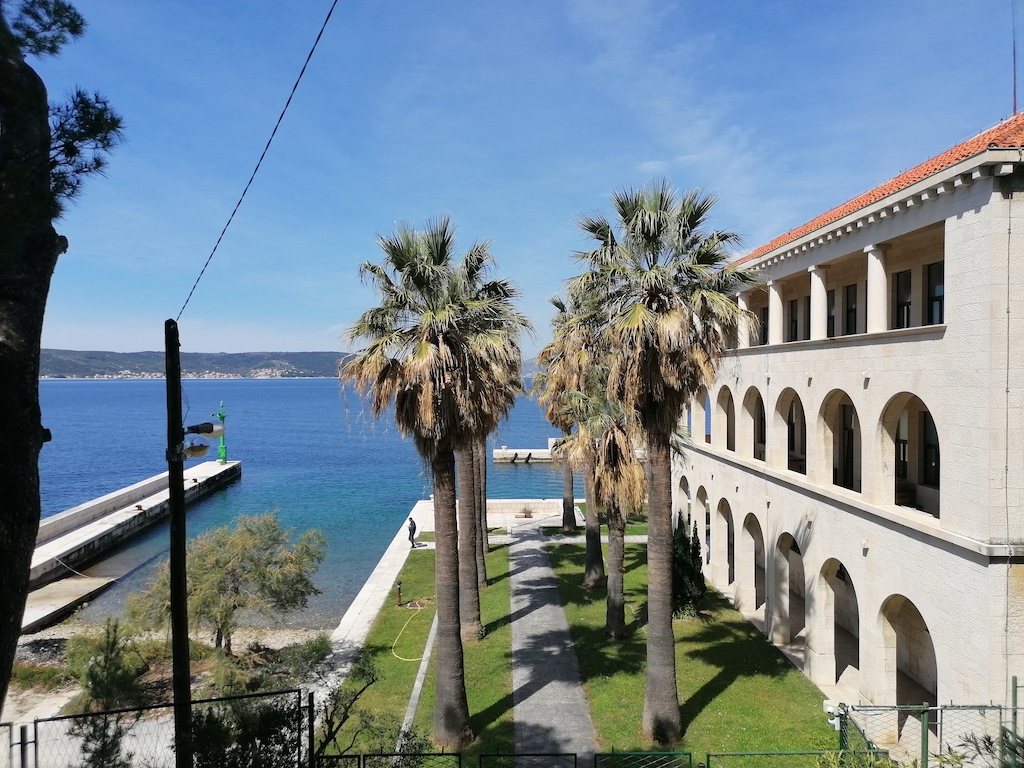
When I arrived in Split at the end of November, it sounded impossible even to go to Bosnia and Hercegovina. Quarantine challenged us, but eventually, we're grateful to it. We've had so many amazing trips around the country, we've seen fantastic views we'd never visit otherwise. I was impressed by the winter trip to Knin and to the source of the Cetina river. Nellia experienced a true authentic Dalmatian dinner and family atmosphere at her friend's house in Omiš. Together we discovered Dalmatian islands, and actually, I don't know what activity could be better. Daria would be a good promoting agent for Sljeme for everybody who asks about interesting destinations in the vicinity of Zagreb. She also could perplex even some locals telling about her hiking on Zeleni vir near Varaždin.
There was more entertainment before Covid as well. Dana managed to go to dancing classes in Zagreb. Although she didn't find classes of her favorite 'jazz funk' style she practiced in Saint-Petersburg, her Croatian friend introduced her to partner dancing and she liked it. To date, I've abandoned dancing, because all the classes were closed. Our experience with movies is quite similar in Zagreb and Split. We prefer old movie theaters - as Tuškanac or Zlatna vrata, which shows timeless classic and independent movies. There is a wide-ranging and international programme there. Tickets are cheaper than in Moscow or the usual cinema situated in some shopping mall here.
Daria warns expats about choosing a movie where the action happens in some highly cross-cultural circumstances as in 'The Mauritanian' she watched recently. The matter is that the original movie is in English, but in some moments characters speak their mother languages like French, etc. And in such moments you cannot understand anything, because all the subtitles are given in Croatian. However, this is not the majority, and movies in Croatia are very friendly to the non-Croatian-speaking public.
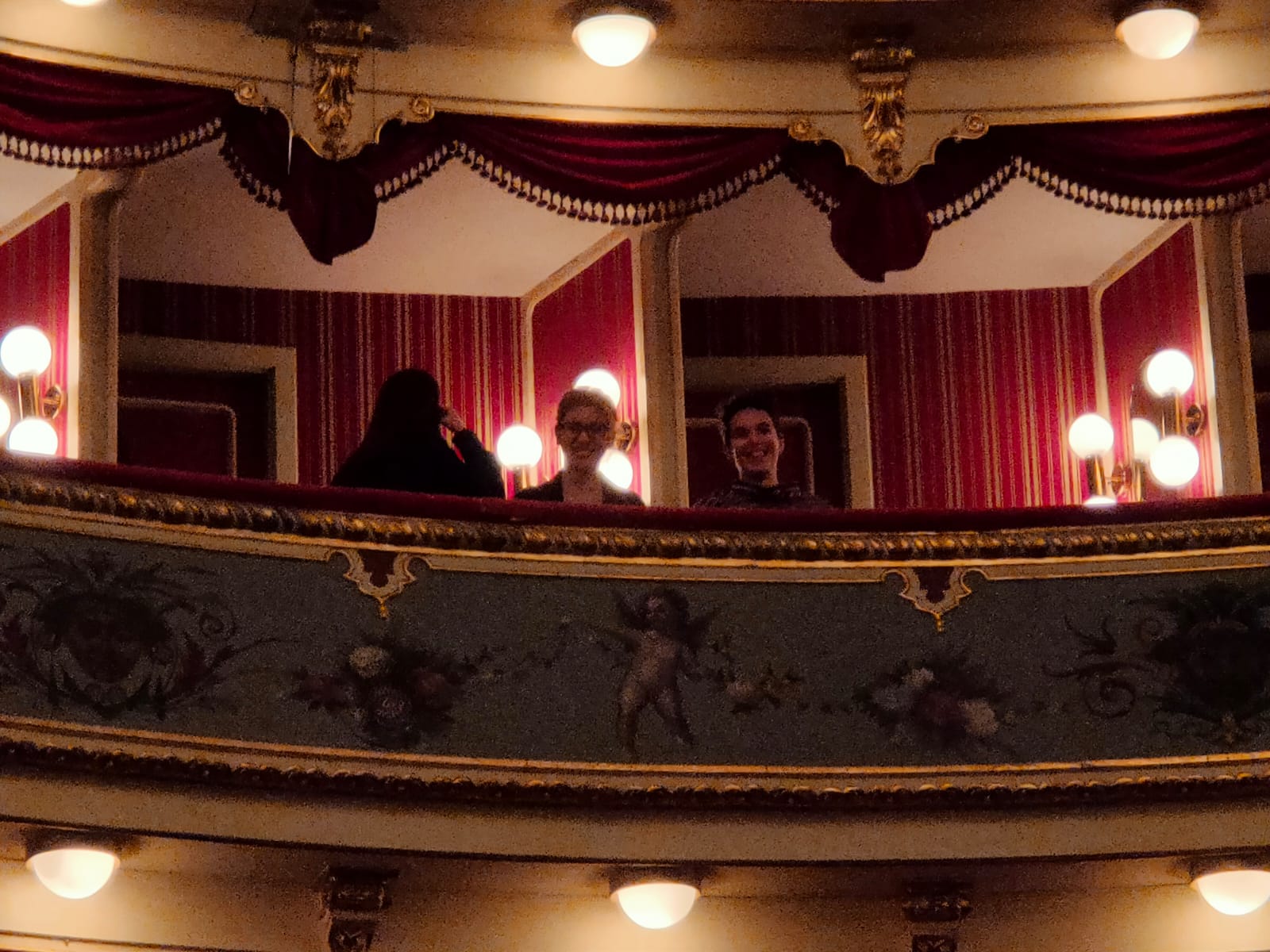
The situation is the opposite in the classic theaters. Shows are mostly in Croatian. Daria speaks Croatian, therefore she goes to a theater in Zagreb at least once a month. Meanwhile, we agree that if you're this Russian 'theater-goer', you'll for sure understand a plot, because our languages and repertoires intersect enough. So that, in this sphere being expat from other Slavic counties is an advantage. Another advantage is having a Croatian friend who will advise in choosing the show, because to manage it by yourself is not so easy.
Our Croatian friend from Split who studies in Zagreb said to us that theater is much better in Zagreb than in Split. Thus, we don't go to the theater in Split. In fact, with Nellia we tried the Swan Lake ballet at HNK (Croatian national theater) in Split. It was... I'm going to put this as delicately as I know-how, not what we expected to see with our Russian-classic-world-famous-ballet background! Here a ballet is a less disciplined and more relaxed art that is closer to modern styles of pop dancing.
Integration in the community
Since we went to Croatia through an EU-programme, our community from the very beginning consists mostly of expats. Of course, we communicate with a lot of Croatians at work. While quarantine measures are still in place, we meet Croatians not only at work, thus, I'd say now our community is mixed. We'd never tried purposely to find Russians here. Thanks to the programme, each of us have one Russian-speaking friend: I have Nellia, Daria and Dana had their friends from Ukraine and Belarus accordingly. Several times we met Russians, just for small talk. The fact is that we don't really need it much. We enjoy our international community. We've met a lot from the intercultural exchange. However, if we'd fancy it, it wouldn't be a problem to find a Russian community. Russian shop 'Ruske delicije' is situated in the center of Zagreb. You can always ask for Russians there. If you're used to social networks, it's even easier - a search on Facebook groups and Instagram hashtags works perfectly.
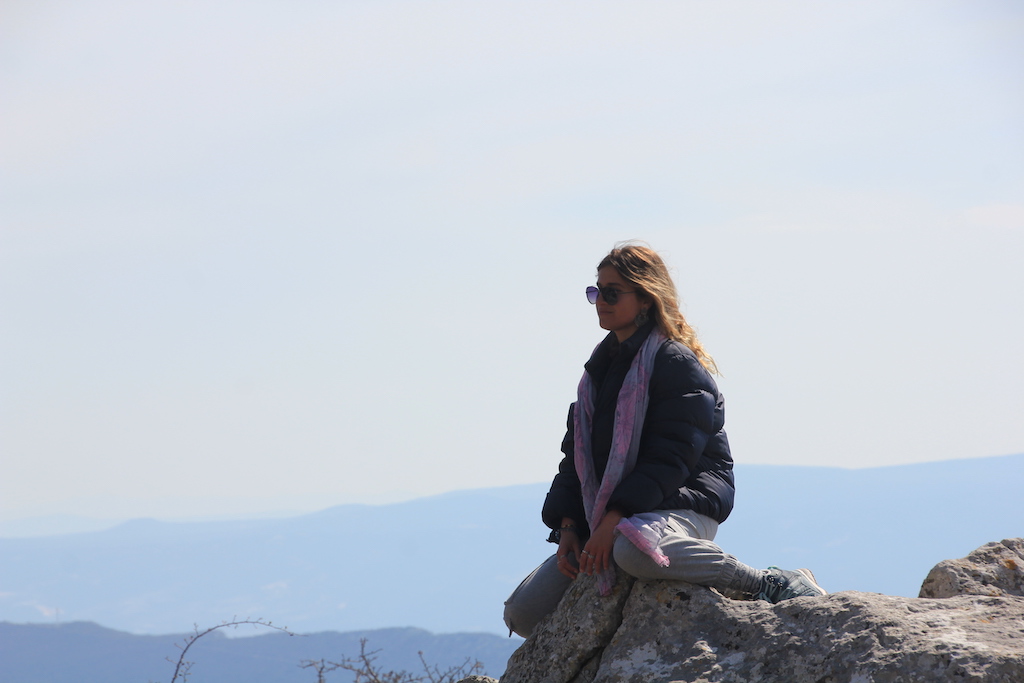
Half of us came here with knowledge of the Croatian language and definitely improved it with everyday practice. Half started to learn on the ground and reached a significant level of comprehension. For sure, it's easier to learn Croatian if you speak some Slavic language. When Nellia doesn't remember any word in Croatian, she just says the Russian word instead of it, and it often helps. However, Nellia and Dana recognise that we're not really motivated to bone up Croatian, as far as almost everybody in Zagreb and Split speaks English. I understand them. Only once I observed a seller who didn't speak English, it was in a sewing store - certainly not popular among tourists and foreigners! Nevertheless, I agree with Daria that if you plan to stay here for a long time, it worth learning some Croatian.
Pomalo
'Pomalo' that is a part of local mentality and a Croatian word for 'take it easy, 'hello', 'how are you, 'i'm fine, 'I'll do it tomorrow' affected our attitude to life. When Dana arrived in Saint-Petersburg after a year in Croatia, she noticed she became more patient seeing lines in the metro or people smoking in the corridors of the metro. Meanwhile, she supposes that Petersburg encourages initiative and entrepreneurship more than Zagreb, the lifestyle there is more dynamic. Nellia and I as well can barely imagine our years of hard studying and hard-working in the atmosphere of 'fjaka' (a Croatian word for siesta that can last infinitely) and 'pomalo'. But whereas we've already passed this hard period of life Moscow, we enjoy every morning in Split.
For more on travel in Croatia, follow TCN's dedicated page.
KK Split Dominates ABA Relegation Game in Sarajevo
May 15, 2021 - An 84:64 (39:35) away game victory for Split brings the decisive final ABA relegation game back to Gripe.
The relegation series between the Yellows from Split and Spars Sarajevo remains undecided. After the surprise loss at home on Wednesday, KK Split kept its chances alive to play in the first division of the ABA League again next season.
Many news agencies did not hold back with negative reports when KK Split, with one of the biggest purses, if not with the biggest budget in the Croatian league, failed to decide the first game at Gripe in its favor. Having club legend Toni Kukoč witness the loss in one of his rare visits to his former home gym was called a disgrace or even a slap in the face.
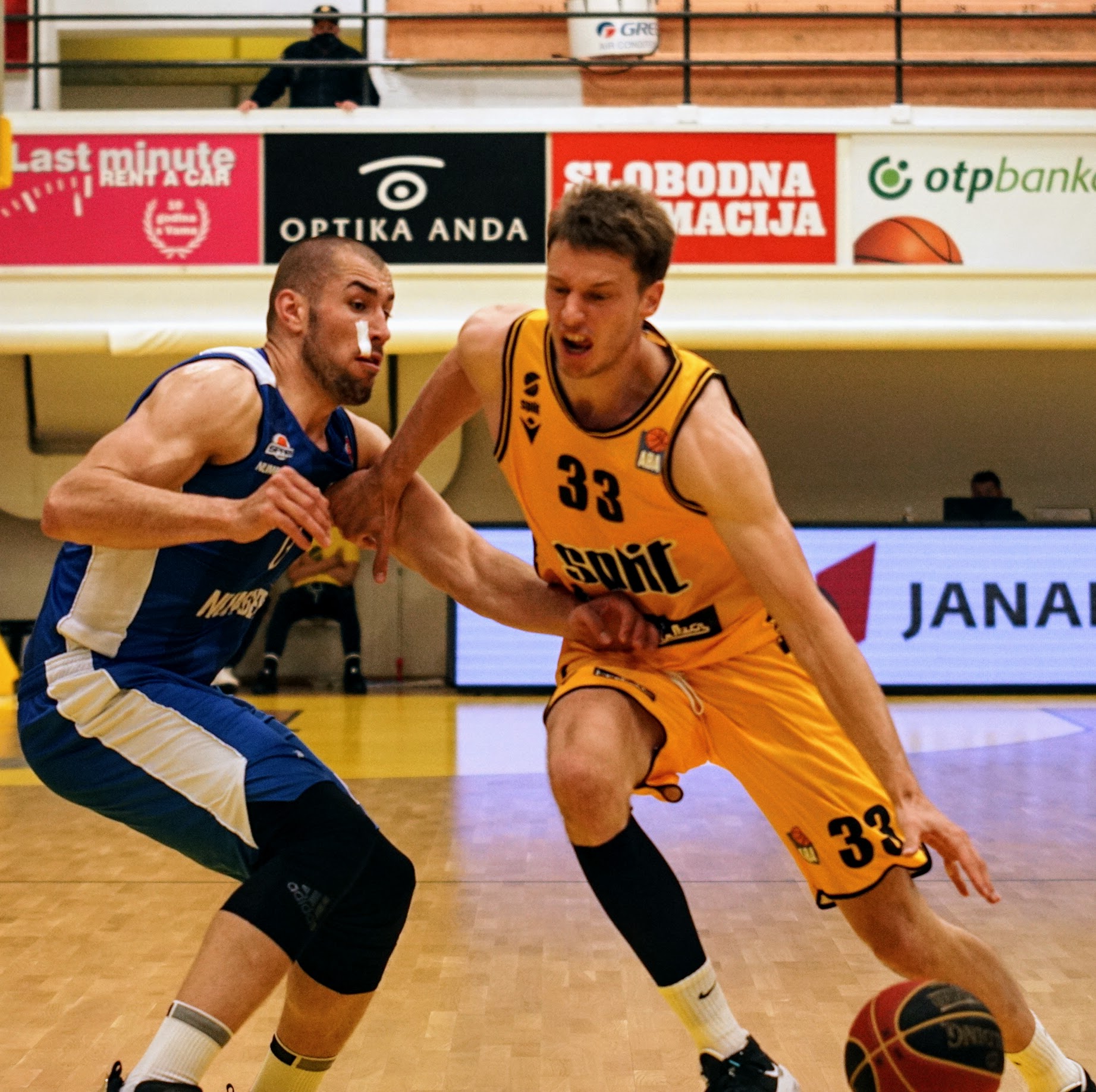
Today coach Mile Karakaš was able to motivate his team to strike back and leave no doubt that this mini-series is not over yet and has shown clearly why it was the favored team, to begin with.
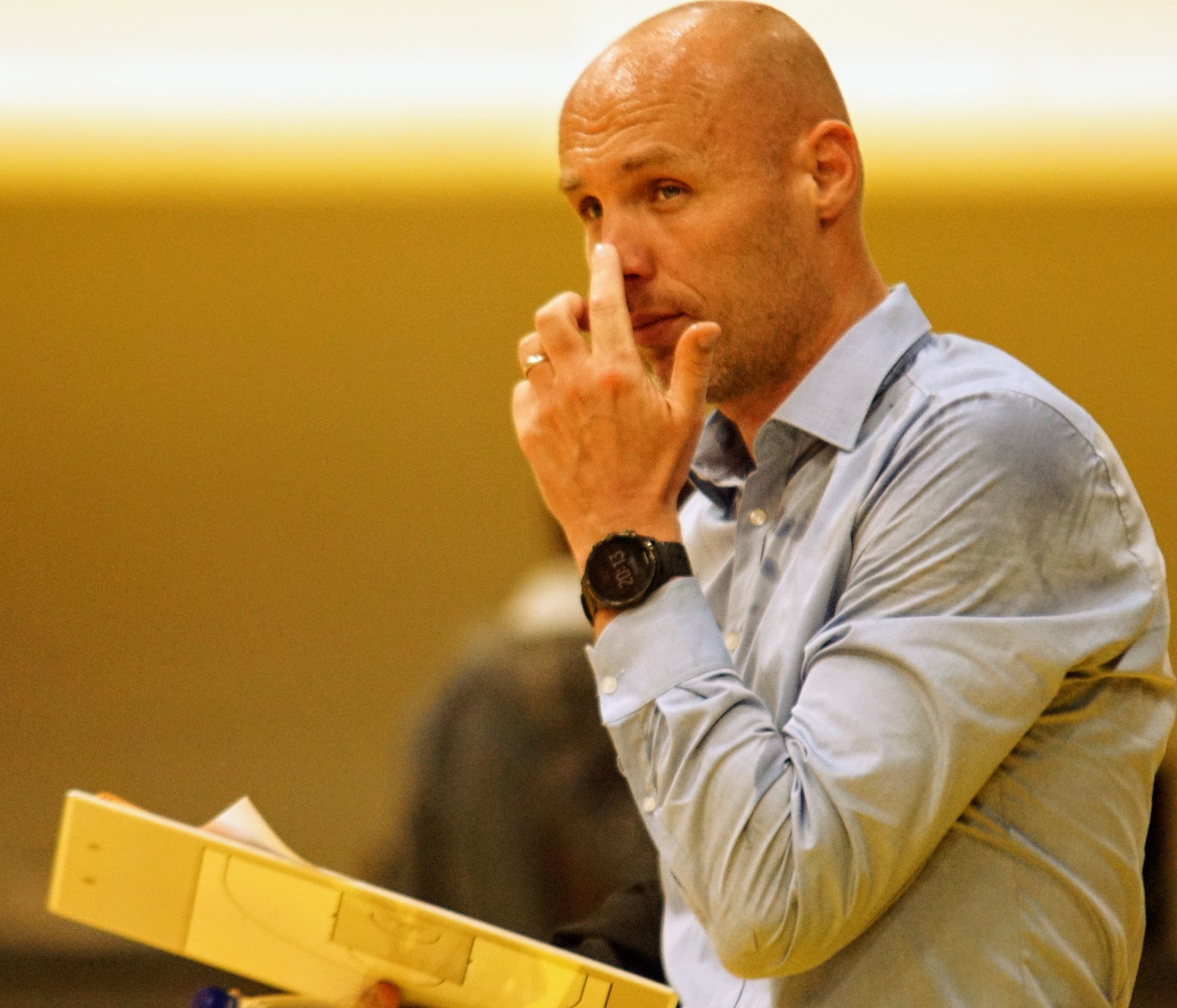
Spars Sarajevo was merely able to compete with the Yellows in the first quarter. At the end of ten minutes, they were up by 18:17 before Split shifted gears and pulled away to 39:35 at half time and then increased the lead to 58:51 by the end of the third quarter.
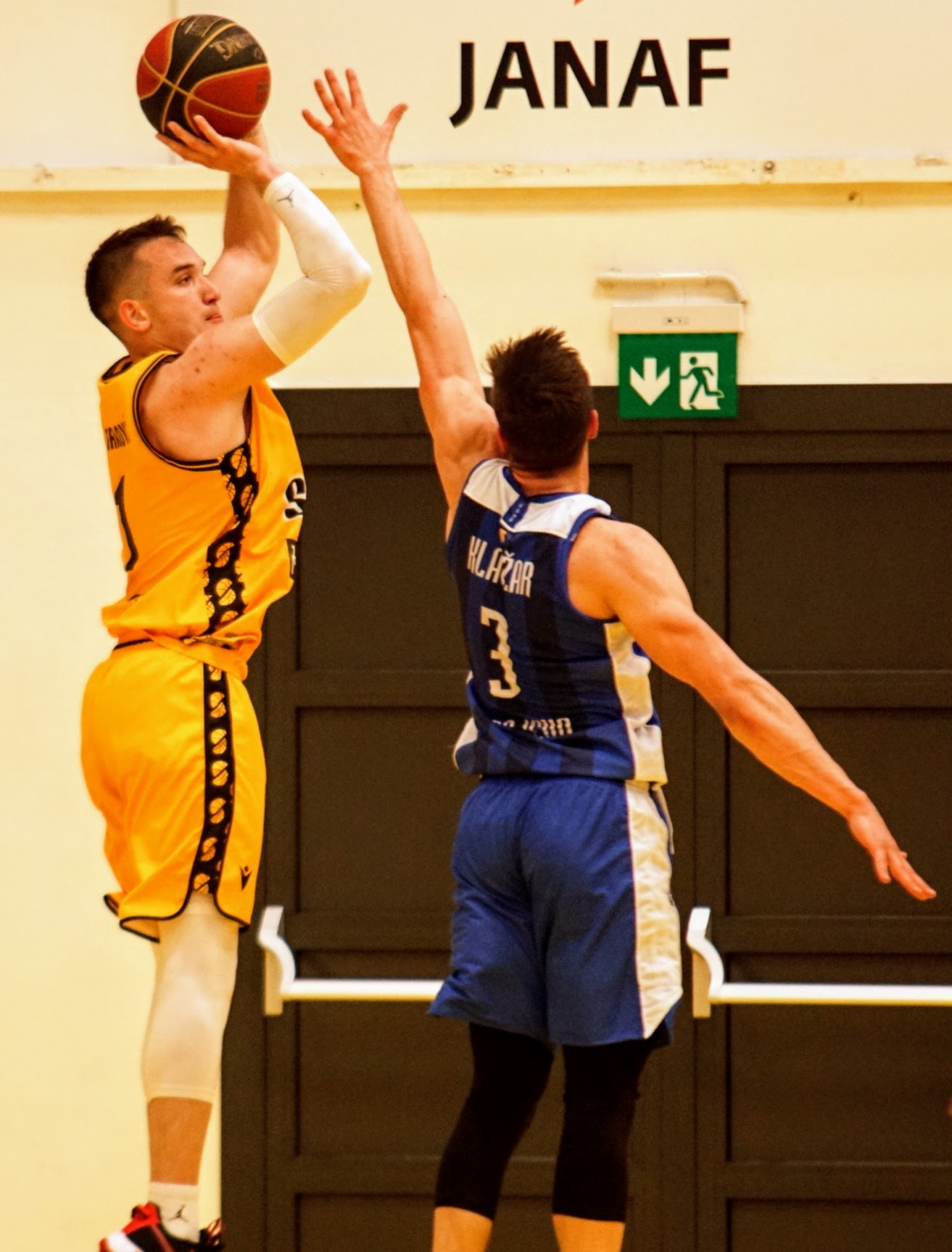
Sarajevo was not able to find any way to counter and was shown its place by Split. The guest team outscored the hosts with 26:13 in the last ten minutes to tie the mini-series at 1 victory each.
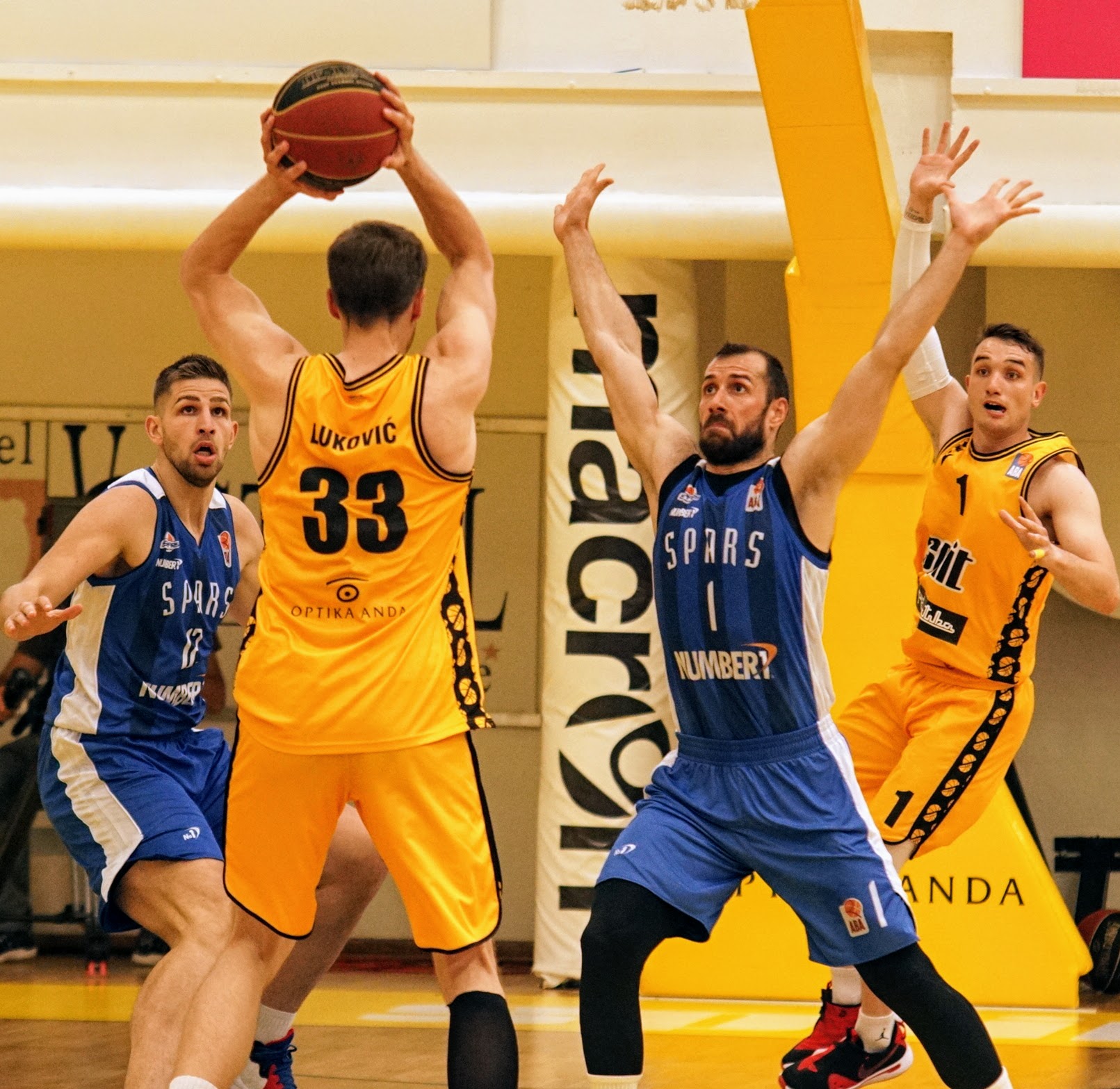
Pavle Marčinković was able to play again for Split after missing the last game due to injury, and Marin Marić was able to show his importance under the basket. Spars' rising star Kenan Kamenjaš scored 16 points and was tied for the top scorer position with his teammate Nedim Buza and Split's Marin Marić. The decisive factor, however, was the accuracy the Yellows showed from beyond the 3-point-line. 15 of 32 attempts found their target for an impressive 46.9% success rate.
The final game to decide who gets to play ABA League 1 next season will be played at Gripe in Split on Thursday.
Referees: Milivoje Jovčić, Radoš Arsenijević, Aleksandar Milojević
Boxscore: https://www.aba-liga.com/match/2/20/8/Overview/q1/1/home/spars-split/
To follow the latest sports news in Croatia, follow TCN's dedicated page.
To get more news about sports in Croatia, CLICK HERE.
Wizz Air Flights to Dubrovnik Return with Rome Summer Service, Split-Rome Also Announced
May 14, 2021 - The latest news for flights to Croatia as Wizz Air flights to Dubrovnik return with the announcement of a Rome summer service, while a new Split-Rome route will operate, too.
Croatian Aviation reports that the well-known Hungarian low-cost airline Wizz Air will increase the number of aircraft based at Rome's Fiumicino Airport in July and announced two new routes to Croatia. After a long break, Wizz Air is returning to Dubrovnik Airport!
The airline announced on its official website that A321NEO aircraft would be based at Fiumicino Airport. Several routes will be opened to European destinations, including two airports in Croatia - Split and Dubrovnik.
After a long break, Wizz Air returns to Dubrovnik Airport. The line will be in traffic three times a week, from July 1 to October 30, on Tuesdays, Thursdays, and Saturdays.
With as many as 53 planned rotations, Wizz Air will offer more than 25,000 seats between Dubrovnik and Rome!
From July 2, Wizz Air will introduce the Rome - Split Airport - Rome route, which will also operate three times a week, every Monday, Wednesday, and Friday, until October 29. On 52 return flights, the airline will offer as many as 24,856 seats between Split and Rome this summer! This is the seventh new Wizz Air line this summer season to Split Airport.
In addition to Wizz Air, two other airlines operate in the summer flight schedule on the routes from Rome to Dubrovnik and Split: Croatia Airlines and the Spanish airline Vueling.
From July, passengers can choose between three airlines to travel to the Italian capital from Split and Dubrovnik airports, on one of the newest aircraft in the fleet of this well-known European low-cost airline.
Follow the latest on flights to Croatia HERE and the latest travel updates and COVID-19 news from Croatia HERE.
For more on travel in Croatia, follow TCN's dedicated page.
Sarajevo Surprises Split in First ABA Relegation Match
May 13, 2021 - Split could not use home-court advantage against Spars in the 70:76 (46:49) defeat in the first ABA relegation match on Wednesday.
Jugoplastika veteran Toni Kukoč was present on the VIP stands and witnessed a bitter defeat for his former team in the battle to stay in ABA League 1. The guest team Spars from Sarajevo was able to take away the home-court advantage and could already finish this mini-series with another win at home on Saturday. The team to win two games first will get to play in ABA league 1 next season; the other team will play in the 2nd division.
The Yellows from Split ended up playing in the relegation because their impressive run ended abruptly when they had to take a Corona-break from games and practices just before the end of the season. The previous success that came with new coach Mile Karakaš lost steam, and eventually Split lost their positions in the national league and in the ABA league. While recapturing the second position in the national league, they fell to the last position of the ABA League 1. With Primorska already having withdrawn from the league earlier, the Yellows' did not drop out of the league directly. Still, they had the right to play relegation against the runner-up in ABA League 2, which turned out to be Sarajevo.
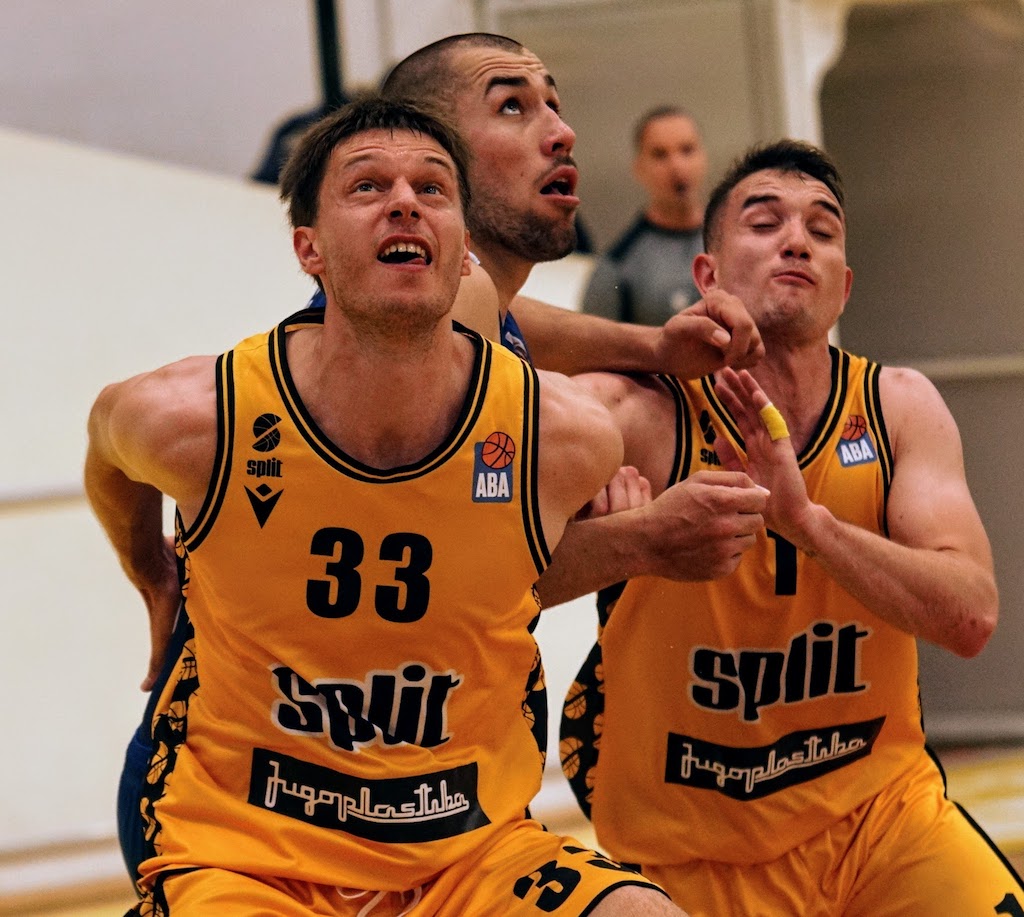
Spars Sarajevo had just lost the championship in Division 2 of the ABA league against Studentski Centar Podgorica. After the regular season, they had qualified for the finals as runner-up. Then Spars lost the two final playoff games against Studentski Centar, who then qualified directly for ABA League 1, while Spars kept the chance to play the relegation games against Split.
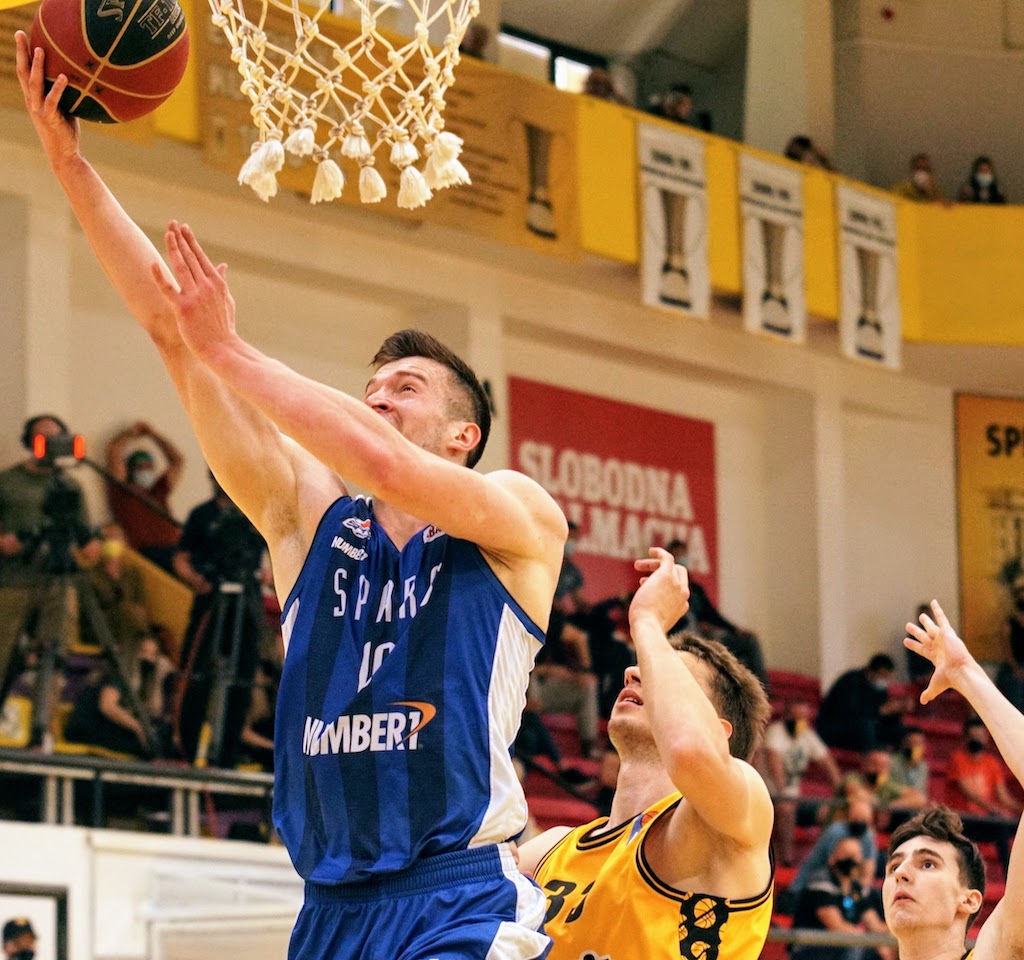
The game was conducted under Covid measures, and KK Split had a better start into the game. Sarajevo coach Miodrag Kadija saw his team fight back and take control of the second part of the first quarter and most of the second quarter to secure a slight 46:49 lead at halftime.
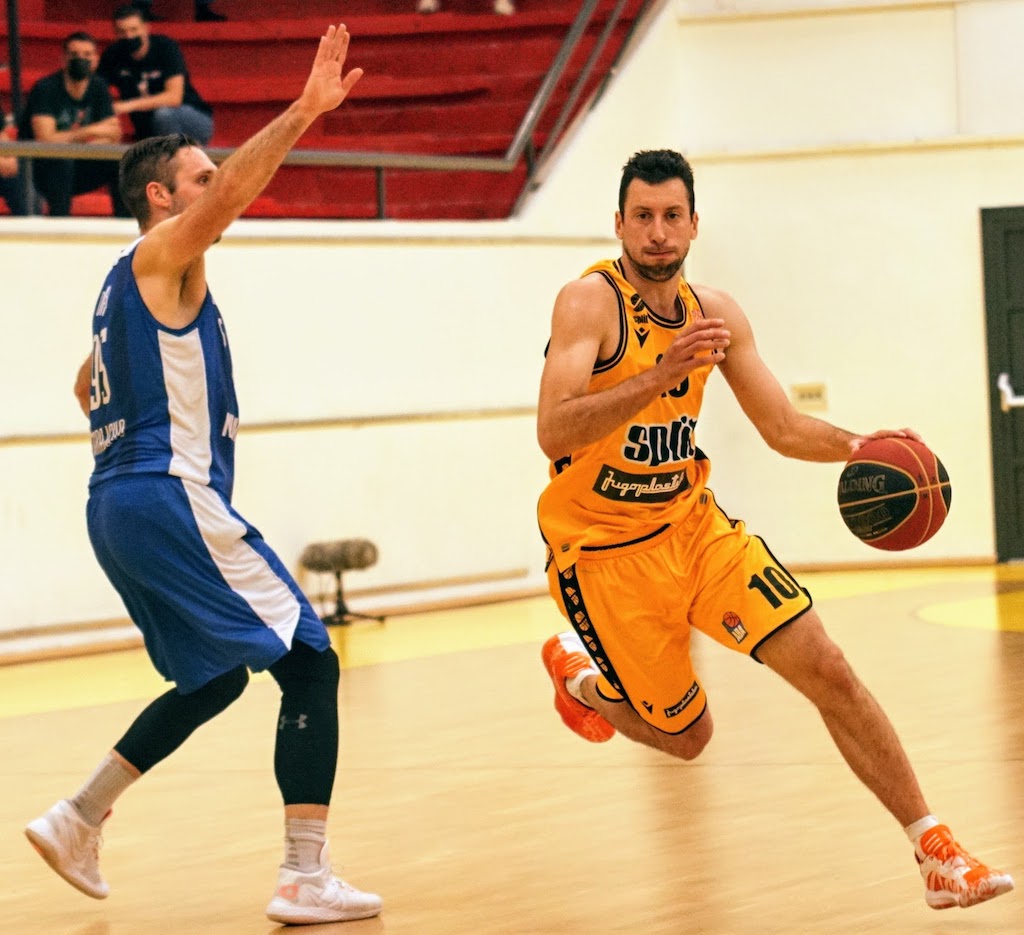
Both teams returned eager to fight this game till the last second, and the second half became an intensively fought defensive battle. Just 90 seconds before the final whistle, Split scored for 70:71 that put them in reach of victory. What followed was a wild back and forth where both teams lost the ball several times. The Yellows couldn’t turn the game around and had to watch Lithuanian Orelik Gediminas hit a three-pointer to seal the visitor’s victory.
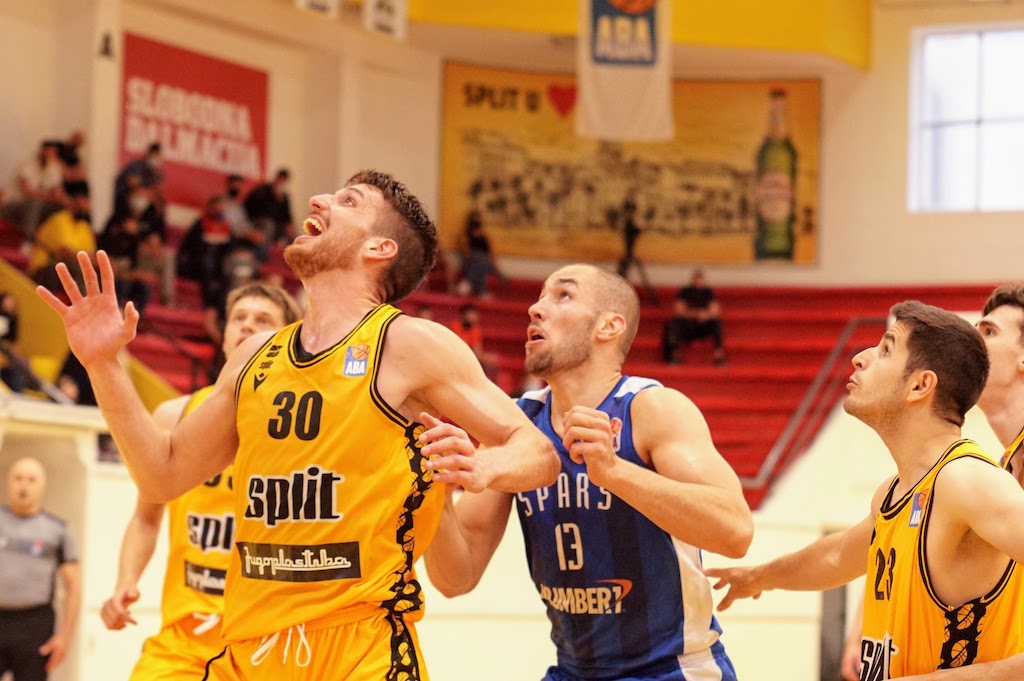
Sarajevo’s rising star Kenan Kamenjaš was the top scorer and most valuable player of the night with 19 points. Should Split manage to win in Sarajevo on Saturday, the final game would be played in Split again.
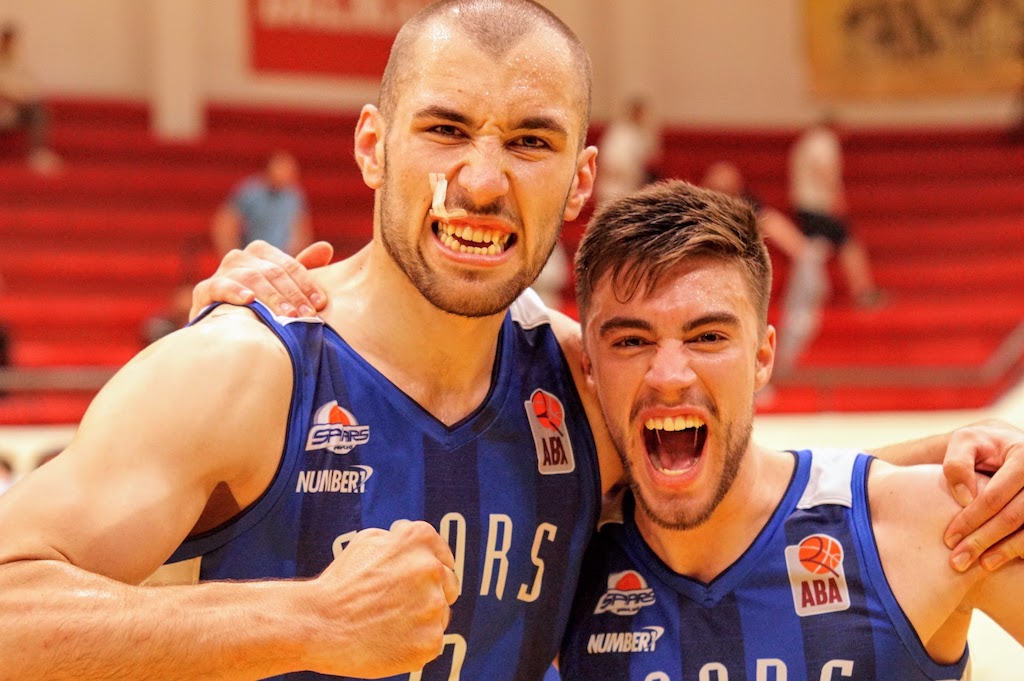
Box score: https://www.aba-liga.com/match/1/20/8/Boxscore/q1/1/home/split-spars/
Referees: Miloš Koljenšić, Igor Dragojević, Radoš Savović
To follow the latest sports news in Croatia, follow TCN's dedicated page.
To learn more about sport in Croatia, CLICK HERE.
700-1000 Regiojet Tickets to Croatia Sold Daily!
May 13, 2021 - Great news for the summer as 700-1000 Regiojet tickets to Croatia are being sold daily, with a particular interest in Split.
On March 10, the Czech railway carrier RegioJet started selling tickets for Croatia. This year, the line will run to Split, in addition to Rijeka. Regiojet also offers its passengers the possibility of booking accommodation in certain hotels in Porec, Crikvenica, the island of Krk, Makarska, and other destinations.
Aleš Ondrůj from RegioJet points out for HRTurizam that about 25,000 tickets for trains to Croatia and back have already been sold this year. Interestingly, they sell 700 to 1000 new tickets for the mentioned lines every day, which is proof of the great demand for Croatia.
"We already have trains sold out. We are very pleased with the results so far - ticket sales are accelerating every day," says Ondrůj from RegioJet.
In combination with bus transport from Rijeka and Split, RegioJet promotes and offers arrivals to as many as 56 destinations in Croatia, so this year even better results are expected than last year.
"As I mentioned, from this year RegioJet has introduced a line to Split, for which there is great interest. Thus, in Ogulin, the train will be divided into a part that goes to Rijeka and a part that goes to Split, and vice versa. There is a great demand for the line to Spit, and the first train to Split is already sold out. According to the current sales, 60% of tickets were sold for Split, and 40% for Rijeka," says Ondrůj.
When asked who their partners are in Croatia, Ondrůj points out that they cooperate with the same partners as last year and appreciate the cooperation with Croatian partners such as HŽ PP, HTZ, and the Tourist Boards of the Split and Rijeka regions.
"We are working with the same partners as last year. So mostly Croatian Railways PP, HTZ, and the Czech travel agencies Čedok and Mediterane Travel, which sell holiday packages, including accommodation and our tickets. Regarding bus transport, we also cooperate with our traditional partner Arriva and the company Čagalj Tours. In addition, many other travel agencies organize holidays in Croatia - for example, for young people on Zrće, and buy tickets on our trains and organize excursions to Croatia," said Ondrůj, adding that they also see reservations from Croatia to the Czech Republic.
"We also see reservations from Croatia where there is interest in visiting Prague, Bratislava, and Budapest. So we are delighted to have passengers from Croatia on our trains," concludes Ondrůj.
RegioJet trains to Croatia will depart on May 28 and will run until September 27, with them arriving in Croatia daily in July and August and three times a week in May, June, and September. Last year, RegioJet trains on the Prague-Rijeka line transported more than 60,000 passengers in both directions.
For more on travel in Croatia, follow TCN's dedicated page.
Split Digital Nomads Increasing Daily: ‘It’s Great Here, We Feel Safe’
May 12, 2021 - Split digital nomads are increasing daily thanks to the coastal city's quality offer, international community, and safety.
They come from all over the world, live with complete freedom of movement, work from home, a cafe, or a distant island. When choosing a location, the most important condition is a fast and quality internet connection, hospitality, and security. They are digital nomads, highly qualified foreigners, mostly IT experts, who are increasingly discovering Croatia as a unique piece of paradise on Earth, and Split seems ideal for their needs, reports Slobodna Dalmacija.
Thanks to amendments to the Aliens Act, Croatia has introduced the concept of digital nomads since the beginning of this year, who now have preferential tax treatment, which facilitates their decision to choose Croatia as their place of residence and work.
They can stay in Croatia for up to a year. The introduction of digital visas for digital nomads was initiated by entrepreneur Jan de Jong, a Dutchman who lives and works in Split. More and more people work remotely, and he sees this as an opportunity for the Croatian economy.
He is the co-founder of the Croatian Digital Nomads Association (DNA) with Tanja Polegubić, a returnee from Australia who has also been living and working in Split for several years. The association's main goals are to provide general information to digital nomads about life and work in Croatia, educate, connect digital nomads with service providers, and present their problems to the authorities.
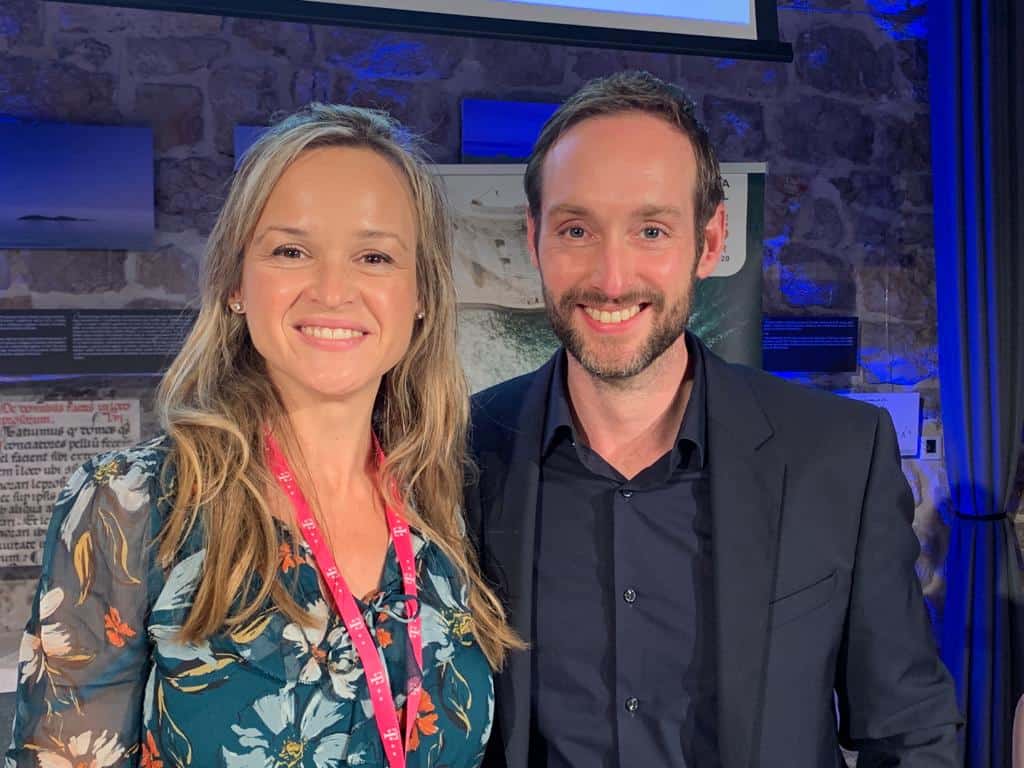
"Split is already a natural choice for many digital nomads, just like other cities on the coast. But that could change if some changes don’t happen, that is, if the city doesn’t open up to digital nomads. When I was looking for a coworking space to work in 2015, I searched the entire Adriatic coast.
I spent a lot of time in Zadar, Trogir, but Split attracted me especially. There is something in it. Everything suits me here: it is neither too big nor too small. There are a lot of quality restaurants and bars, and there is a big international community. At the same time, the locals speak English well," says Tanja, owner of the company "Saltwater," an aid to digital nomads as it provides everything one may need, from finding a workspace, connecting people, organizing conferences, various events, conferences and more, and is a member of the Business Incubator of the Croatian Chamber of Commerce of the Split County Chamber.
Tanja said that digital nomads in Split work from home, i.e., from rented apartments, hostels, hotels, or coworking spaces in several Split locations.
"This has been an interesting year, and I have befriended many people who have stayed in the city. Most like to live in a circle around the city center and in the Palace. Varoš, Bačvice, Meje are popular with them ... in fact, those neighborhoods from where they can reach the city center on foot in a short time. They mostly stay in private apartments and less in hotels because they are too expensive for them.
But the problem is the short rent they get from private renters who, of course, find it more cost-effective to give the apartment to a typical tourist rental that is expensive for nomads. Even the off-season offer of social life, which weakens after the summer, does not favor the arrival of nomads for whom the social aspect is important, the offer of the destination where they stay, the diversity of content around them because they want to meet new places and people. True, there was a pandemic that disrupted everything, but we need to adapt.
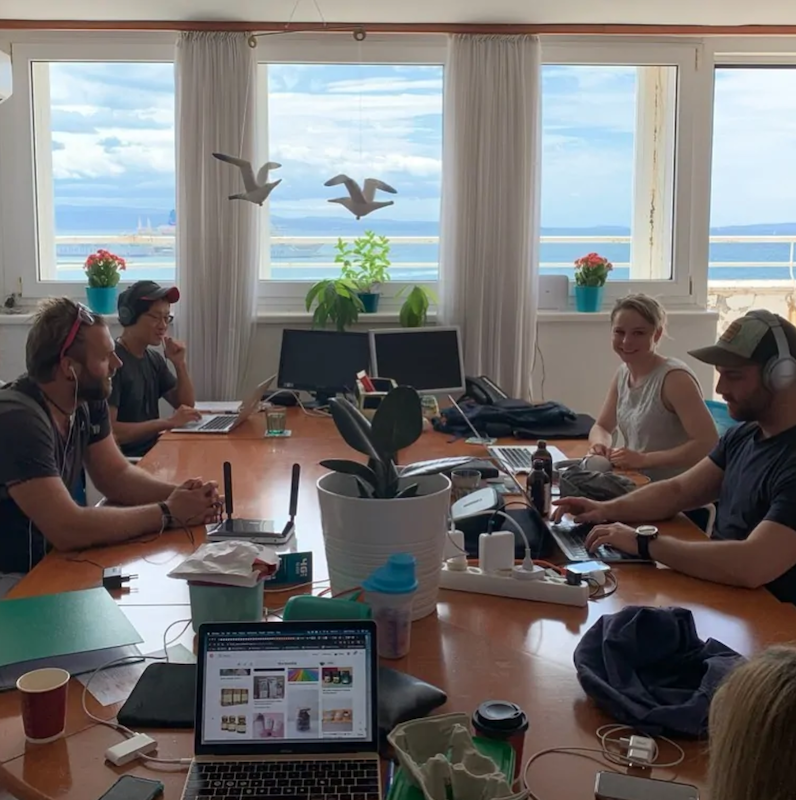
On the other hand, this environment is quite interesting for them because of their hospitality and security, especially for families with children, the health system has a good reputation, the climate is mild," says Tanja, who receives many inquiries about Croatian cities from digital nomads. The conditions they need to meet are proof of constant income, proof that they are digital nomads, that is, that they are not coming to Croatia to sell something but to do their job from this destination.
To help foreigners come to Croatia, a DNA association was established.
"The goal is to support digital nomads - as well as local businesses. The association deals with information, education, community networking, certification, and representation of digital nomads and various businesses before various Croatian institutions. Ways are being devised in which digital nomads can contribute to society, for example, around animal welfare or environmental protection.
It also focuses on tenancy topics because we know that many tenants and students are evicted from rented apartments when the tourist season begins. We will organize "certified" service providers so that digital nomads know that they will be protected," says Tanja Polegubić, believing that Split and Croatia have an excellent chance of becoming one of the favorite destinations of digital nomads if they open their hearts.
While Dubrovnik has gone the furthest in this regard, Split is also turning towards such modern trends. For example, the Split hotel "Marvie" offers affordable packages for long-term stays. As much as a 50 percent discount for stays of 28 days or longer, even in the middle of the summer season. Guests have at their disposal a separate co-working space with high-speed internet of 200 Mbps, a projector with a screen and a flipchart, which can simultaneously fit 7 people, ergonomic chairs, and everything that makes the stay more comfortable.
Namely, teleworking is a growing trend with exceptional economic potential, which is supported by predictions that by 2022 there will be more than 1.87 billion workers in the world whose work will take place online regardless of location. Therefore, "Marvie" is the first Croatian hotel to create an offer fully adapted to the needs of teleworkers.
Jan de Jong points out that digital nomads are an opportunity that we must not ignore. The main advantage for Croatia is year-round tourism and the arrival of highly paid workers who would not take jobs and spend their salaries in Croatia.
"Digital nomads and marketing are important for Croatia because they share their experiences, videos, and photos with their families, but also on social networks, which is free promotion. Since the introduction of visas, 33 of them have applied, and four have been approved, while the rest are being considered," he said.
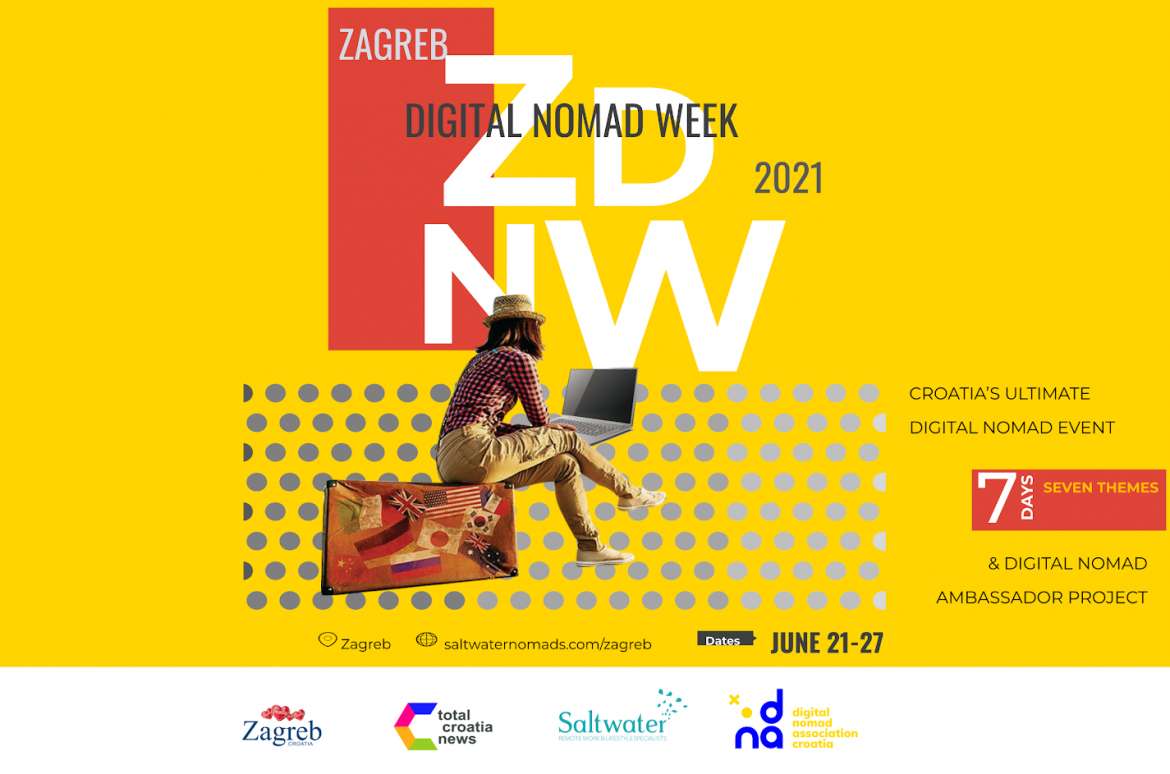
Learn more about Zagreb Digital Nomad Week 2021 Announced by Saltwater Nomads/Zagreb Tourist Board HERE.
Learn more about the Dubrovnik Digital Nomads-in-Residence program
Saltwater Nomads' Tanja Polegubic on Dubrovnik Digital Nomad-in-Residence Programme
Dubrovnik Mayor Mato Frankovic on Digital Nomads, US Flights, 2021 Season
For the latest on digital nomads in Croatia, follow the dedicated TCN section.
Air Serbia Flights to Split and Dubrovnik Announced for Summer!
May 10, 2021 - The latest flight news to Croatia as Air Serbia flights to Split and Dubrovnik have been announced for the summer, starting May 28!
Croatian Aviation reports that the Serbian national airline will launch routes to two destinations in Croatia - Split and Dubrovnik from the end of May.
Namely, Air Serbia, the national airline of the Republic of Serbia, will resume its seasonal routes to two destinations in Croatia - Dubrovnik and Split, after the winter break (slightly longer due to the impact of the global pandemic).
As we announced earlier, Air Serbia will not operate on the other three seasonal routes in Croatia this year, to Pula, Rijeka, and Zadar, solely due to reduced demand caused by the global pandemic.
The Belgrade - Dubrovnik Airport - Belgrade line will be in operation from Friday, May 28. Two flights a week have been announced, every Monday and Friday afternoon.
The Belgrade - Split Airport - Belgrade line will also operate from June 28, on the same days as the line to Dubrovnik.
ATR75 and A319 aircraft have been announced on both routes, depending on travel dates and the demand for individual flights. The company currently plans to increase the number of weekly operations on both lines as early as June by introducing a third weekly flight. In the peak summer season, the number of operations should be significantly higher.
Along with Split and Dubrovnik, Air Serbia operates on a year-round route between Belgrade and Zagreb. In June, the company will have five flights a week on this route, every Monday, Thursday, Friday, Saturday, and Sunday.
Ex Yu Aviation reported that Air Serbia recorded its busiest since the pandemic on April 30 (Good Friday for Orthodox Christians), when they carried 5,324 passengers (4,758 on scheduled flights and the remaining 566 on charters).
“This would be an excellent result even before the pandemic”, the airline said.
Follow the latest on flights to Croatia HERE and the latest travel updates and COVID-19 news from Croatia HERE.
For more on travel in Croatia, follow TCN's dedicated page.


